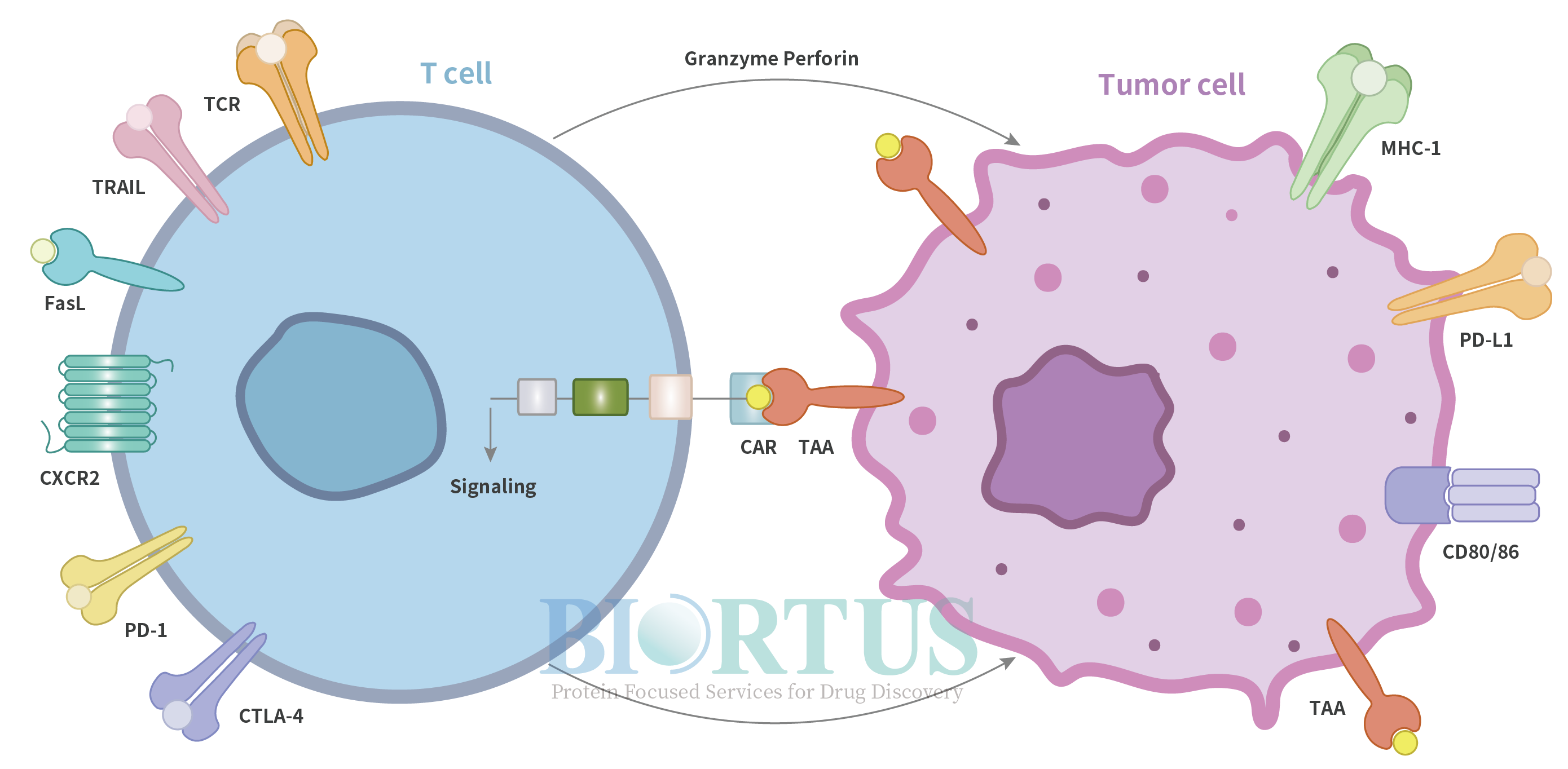Cell Therapy
Immunotherapy is one of the most promising directions in the field of cancer treatment today. With the expanding application of immune checkpoint inhibitors such as PD-(L) 1 and continuous advancements in CAR-T therapy research, CAR-T therapy, as a "living drug" distinct from traditional medications, has demonstrated breakthrough efficacy in patients with relapsed and refractory tumors. Moreover, its production system and usage scenarios differ from those of conventional drugs. Given the rapid pace of advancements in biotechnology, CAR-T therapy is expected to bring even more surprises to the market.
CAR-T (Chimeric Antigen Receptor T-cell) therapy involves using genetic engineering techniques to introduce genetic material encoding a specific antigen recognition domain and T-cell activation signals into T cells. This enables the T cells to directly bind to specific antigens on the surface of tumor cells, activating them to release perforin, granzyme B, and other substances that directly kill tumor cells. Additionally, the therapy recruits endogenous immune cells by releasing cytokines, further enhancing the destruction of tumor cells. This approach not only achieves the goal of treating tumors but also generates memory T cells, providing a long-term, specific anti-tumor immune response.

 Drug Targets
Drug Targets

